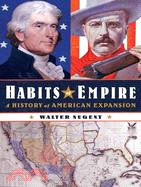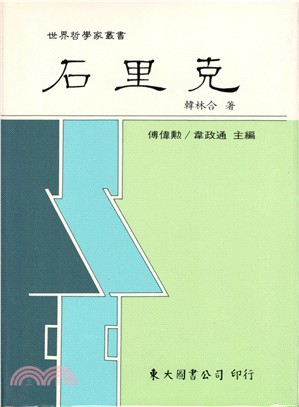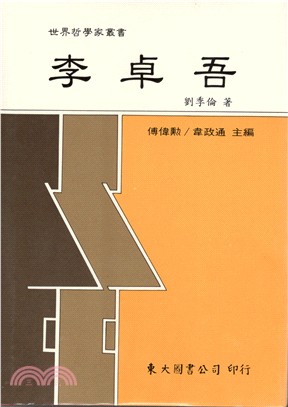Habits of Empire: A History of American Expansion
商品資訊
相關商品
商品簡介
作者簡介
商品簡介
Discussions abound today about the state of the union, its place in the world, and the founding fathers’ intentions. Did they want the United States to become a republic or an empire? Thomas Jefferson, after all, called the young nation an “empire for liberty.” Later words through two centuries all evoked empire: “manifest destiny” in the 1840s, “benevolent assimilation” in 1898, and “our responsibility to lead” in 2002.
Indeed, since Jefferson’s day, Americans have proudly proclaimed liberty and cherished democracy even as they have often behaved imperially. Habits of Empire documents this expansionist behavior by examining each of the nation’s territorial acquisitions since the first in 1782—how the land was acquired, how its previous occupants were removed or reduced, and how it was then settled and stabilized. By 1853, when the continental United States was fully established from sea to shining sea, the nation’s habit of empire-building had become firmly formed.
Each of the acquisitions is a story in itself. In Paris in 1782, the American negotiators—the crafty Benjamin Franklin, the crabby John Adams, and the crooked John Jay—stubbornly and with much luck pushed the new country’s western boundary to the Mississippi River and almost gained southern Canada as well. Hardly any Americans yet lived west of the Appalachians, and their armies had not conquered the region, but they won it nevertheless. That allowed Robert Livingston and James Monroe in 1803 to accept Napoleon’s astonishing offer to sell all of Louisiana. Through a volatile mix of leadership, luck, aggression, chicanery, rampant population growth, and self-confident ideology came the further acquisitions of Florida, Texas, Oregon, and the Southwest.
From the 1850s through the 1920s, America’s empire-building reached across the Pacific (from Alaska through Hawaii and Samoa to the Philippines) and around the Caribbean (from Cuba, Puerto Rico, and several “protectorates” to the Panama Canal and the Virgin Islands). After 1945, American expansion took a new global form, military and economic, and built on the need to contain the Soviet Union in the Cold War. After 2001 and the start of the “war on terror, ” it became both defensive and assertive.
Acclaimed historian Walter Nugent shows how the United States, asserting republican virtue but employing imperial force, has long lived with the contradiction inherent in Jefferson’s famous phrase “empire for liberty.” Enlightening, empathetic, comprehensive, and well-sourced, this book explains the deep roots of America’s imperialism as no other has done.
Indeed, since Jefferson’s day, Americans have proudly proclaimed liberty and cherished democracy even as they have often behaved imperially. Habits of Empire documents this expansionist behavior by examining each of the nation’s territorial acquisitions since the first in 1782—how the land was acquired, how its previous occupants were removed or reduced, and how it was then settled and stabilized. By 1853, when the continental United States was fully established from sea to shining sea, the nation’s habit of empire-building had become firmly formed.
Each of the acquisitions is a story in itself. In Paris in 1782, the American negotiators—the crafty Benjamin Franklin, the crabby John Adams, and the crooked John Jay—stubbornly and with much luck pushed the new country’s western boundary to the Mississippi River and almost gained southern Canada as well. Hardly any Americans yet lived west of the Appalachians, and their armies had not conquered the region, but they won it nevertheless. That allowed Robert Livingston and James Monroe in 1803 to accept Napoleon’s astonishing offer to sell all of Louisiana. Through a volatile mix of leadership, luck, aggression, chicanery, rampant population growth, and self-confident ideology came the further acquisitions of Florida, Texas, Oregon, and the Southwest.
From the 1850s through the 1920s, America’s empire-building reached across the Pacific (from Alaska through Hawaii and Samoa to the Philippines) and around the Caribbean (from Cuba, Puerto Rico, and several “protectorates” to the Panama Canal and the Virgin Islands). After 1945, American expansion took a new global form, military and economic, and built on the need to contain the Soviet Union in the Cold War. After 2001 and the start of the “war on terror, ” it became both defensive and assertive.
Acclaimed historian Walter Nugent shows how the United States, asserting republican virtue but employing imperial force, has long lived with the contradiction inherent in Jefferson’s famous phrase “empire for liberty.” Enlightening, empathetic, comprehensive, and well-sourced, this book explains the deep roots of America’s imperialism as no other has done.
作者簡介
Walter Nugent taught history at the University of Notre Dame for sixteen years and at Indiana University for twenty-one years before that. As a visiting professor he has also taught, lectured, and lived in England, Israel, Germany, Poland, and Ireland. He has published eleven previous books and nearly two hundred essays and reviews. He is a past president of the Western History Association and a former member of the Council on Foreign Relations. He lives in Highland Park, Illinois, with his wife, the historian Suellen Hoy.
主題書展
更多
主題書展
更多書展本週66折
您曾經瀏覽過的商品
購物須知
外文書商品之書封,為出版社提供之樣本。實際出貨商品,以出版社所提供之現有版本為主。部份書籍,因出版社供應狀況特殊,匯率將依實際狀況做調整。
無庫存之商品,在您完成訂單程序之後,將以空運的方式為你下單調貨。為了縮短等待的時間,建議您將外文書與其他商品分開下單,以獲得最快的取貨速度,平均調貨時間為1~2個月。
為了保護您的權益,「三民網路書店」提供會員七日商品鑑賞期(收到商品為起始日)。
若要辦理退貨,請在商品鑑賞期內寄回,且商品必須是全新狀態與完整包裝(商品、附件、發票、隨貨贈品等)否則恕不接受退貨。























